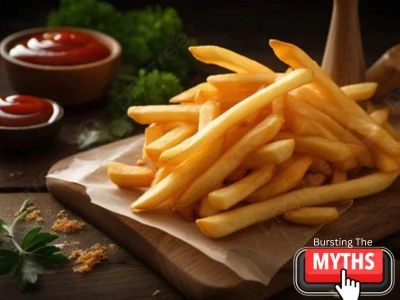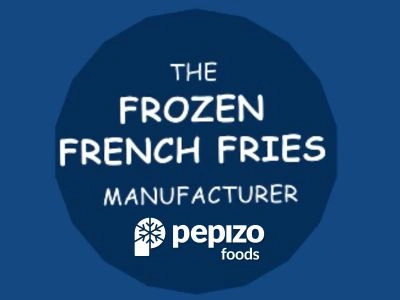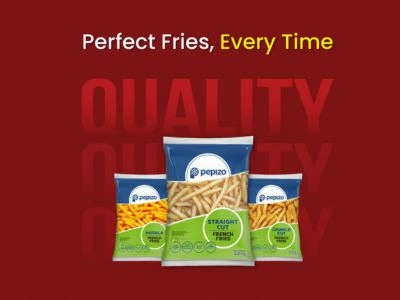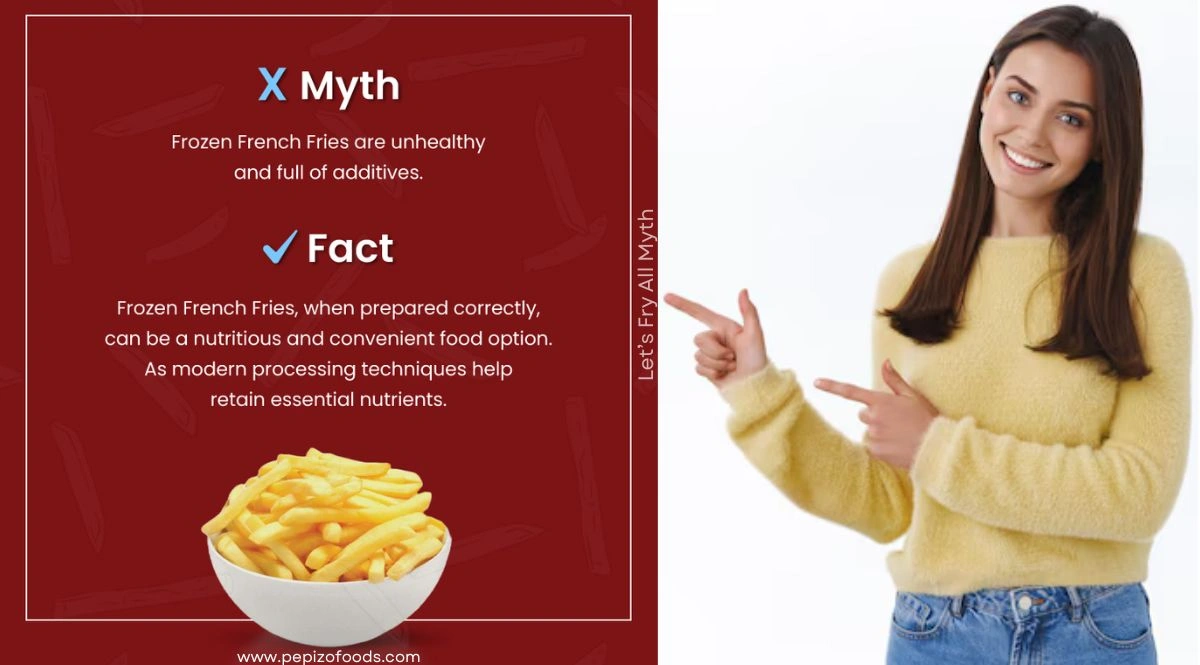How many fries do you think people eat in a year?
Answer: about 29 pounds. Yep, nearly the size of a small suitcase. Frozen French fries are becoming a staple in homes, cafés, and even bento boxes.
But here's the real question:
Are frozen French fries just greasy junk food hiding in your freezer? Or have we been unfairly judging them while munching in secret?
From “they're packed with preservatives” to “they’re just empty carbs,” the myths around frozen fries are deep-fried and half-baked. Today, we’re setting the record straight—with a side of facts, a sprinkle of fun, and a generous helping of crispy truth.
Whether you’re a curious foodie, a health-conscious shopper, or a chef looking for guilt-free golden goodness, grab your favorite dipping sauce—because this blog’s about to get tasty.
Bursting The Myths: Frozen French Fries And The Associated Rumors

Frozen French fries often get a bad name, but do they really deserve it? Let’s clear up the confusion and uncover what’s fact and what’s just fried-up fiction.
1. Are Frozen French Fries Loaded With Preservatives?
This is perhaps the greatest myth out there. A lot of people think frozen French fries are laced with preservatives, additives, and shelf-stable chemicals. That’s not the case with most brands nowadays, like Pepizo Foods follows clean labeling. Pepizo frozen French fries have no additives at all. Premium products only include potatoes, oil, and salt.
Like in the USA and Japan, the markets have stricter regulatory standards. Ingredients are required to be labeled, and unnecessary additions are being phased out because people prefer clean food. So next time you buy a frozen fry pack, do check the label, and you might be surprised.
2. Do Frozen Fries Lose Nutritional Value?
Another common belief is lower nutrient value of a frozen product. Here’s some interesting news: nutrients are preserved best when frozen. When fries undergo flash freezing immediately after processing, a lot of natural goodness, like potassium, vitamin C, and even fiber, is retained.
3. Are People with Gluten Intolerance Able to Eat Frozen French Fries?
This is a primary concern for many individuals who have celiac disease or gluten sensitivity. Fortunately, there is good news as more and more companies like Pepizo Foods are introducing frozen French fries as gluten-free French fries. What this means is they are manufactured without encapsulated gluten seasoning blends or sauces that may contain gluten.
In countries like the United States and Japan, gluten labeling is strict. If something is marked gluten-free, it equates to having under 20 parts per million of gluten, which is virtually nothing. What is important here is that the fries are free from being breaded or battered and produced in non-contaminated places. Fries that are cut from potatoes and fried in oil are then safe to be labeled as gluten-free.
4. Are Frozen Fries Merely Carbs and Oil?
We can all agree that fries are high in starch. But fries aren't completely without some nutritional value. Not only are they a fun food, but potatoes are also a suitable source of potassium, vitamin C, and can even provide dietary fiber, especially if cooked with the skin on.
The idea that fries are "just carbs and fat" kind of originates with the cooking techniques used. If you are consuming a deep-fried product with reheated oil, you are adding a lot of unnecessary fat. But taking the opposite point of view is true if consumed in the oven or air-fried, where you could lose fat content by as much as 60% in most cases.
On top of this is that more producers are switching to healthy oils that alleviate trans fats beyond what oil producers were using a few decades ago.
5. Do All Frozen Fries Contain Unhealthy Oils?
Another idea that has become particularly antiquated is frozen fries using trans fats. In this case, production standards in the USA and Japan, the oil used is not trans fats. Leading manufacturers like Pepizo Foods have similar policies and are even more transparent about the oils they use.
Furthermore, goods tagged as frozen French fries with no additives do not include excessive oils. Some fries are even partially fried to a texture-holding oil level that allows the final cooking method to be completely up to you. Therefore, if oil is a concern for you, check the label and think about how you will be cooking the fries. You have more options than you may believe.
6. Do All Frozen Fries Taste the Same?
Not! Both the cut, shape, and the way they are seasoned really influence the taste and texture. Masala fries have more seasoning than thin-cut shoestring fries, which cook faster and crisp quicker. Fries are sometimes prepped with light coatings of seasonings to maintain some level of crispness in transit.
In Japan, straight-cut and crinkle-cut fries are now also appearing more in bento boxes, and they are showing up in izakayas too! The Masala fry is an American breakfast favorite. The sign here is that there are simply more varieties of fries than are extremely obvious.
Real Talk: What do the numbers tell us?
If you need convincing, here are some simple facts:
- The average American eats roughly 29 pounds of frozen French fries each year.
- Over 4 billion pounds of frozen fries are produced in the United States every year.
- Either baking or air frying frozen fries can reduce fat by up to 60 %.
- Frozen potato consumption in Japan has increased by 12% in the last five years, mostly due to the ease and speed of cooking.
Looking for Fries You Can Trust?

Brands like Pepizo Foods are now offering frozen French fries that are clean-label, gluten-free, and prepared with no additives, no preservatives. With exports to over 24 countries, Pepizo's production meets international standards and caters to a variety of food businesses—from cloud kitchens to QSR chains.
We are pleased to provide:
- Straight, shoestring, and crinkle cut, a variety of textures and shapes are mined for customer appeal.
- International grade quality and consistency recognized with exports to 24+ countries, including GCC, Japan, Malaysia, USA, and so on.
- Supply ideal for cloud kitchens, hotels, retail, and QSR outlets.
- Ensures long shelf life and stable quality across long-distance shipping and storage.
- Follows stringent international food safety standards including HACCP and ISO compliance.
- Customizable private labeling and packaging options for international distributors.
Time to Rethink Frozen Fries

So, are frozen French fries the unhealthy, chemical-packed food they’ve been shamed to be? The answer is no, not really.
For those who are health-conscious, modern French fries can be gluten-free, additive-free, or prepared healthily. Spend less time with guilt—as your fries, whether in Tokyo or Texas, can be honest and simply delicious when done right. The answer lies in the choice of product and brand. Want fries that work smarter and taste better?
Get bulk orders of frozen gluten-free and no-additive French fries manufactured by Pepizo Foods. Start with sample or business inquiries on pepizofoods.com today.



